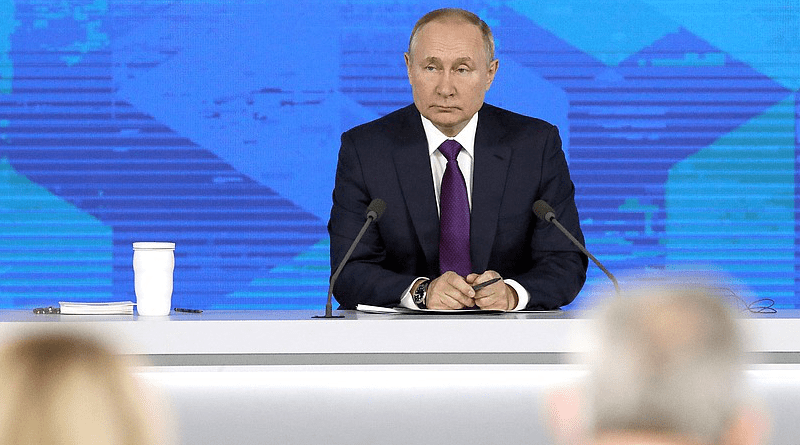Charging Putin With War Crimes Now Could Eventually Affect Russians – OpEd
By Paul Goble
At present, roughly 70 percent of Russians say that they support the war in Ukraine although 50 percent indicate that they would like to see it come to an end, figures, sociologist Lev Gudkov says, reflect the Kremlin’s control of the media environment and the deference Russians traditionally show to the powers that be.
But if Russians do learn of defeats at the front or if they suffer increasing economic difficulties, support for the war is likely to decline although at least for the foreseeable future, such declines are unlikely to lead to public protests or demands for regime change, the former head of the Levada Center says (golosameriki.com/a/gudkov-awareness-of-crime/6957013.html).
Gudkov says that the regime is seeking to control “all open manifestations of dissatisfaction,” although it obviously knows that it can’t achieve “total unanimity.” But it is certainly trying: it has already blocked more than 600,000 Internet pages and closed dozens if not hundreds of print outlets.
Perhaps his most intriguing comments concern how Russians will react to charges that Vladimir Putin is guilty of war crimes. Many in the West assume that will only lead Russians to rally round their leader, but in fact, Gudkov says, the impact of such charges is likely to be far more ambiguous.
Initially, he continues, the majority of Russians will view the lodging of such charges as “slander and a manifestation of the hostility of the West. But there is reason to believe that the understanding of the criminality of the actions of the powers that be will eventually penetrate into mass consciousness.”
If so, Gudkov concludes, “over time and under changing circumstances, [such charges] will certainly pay a big role in terms of the legitimacy” of Putin and his system. “That will manifest itself only after military defeat or an acute economic crisis.” But even now, “peope will listen to the accusations of Western democracies and think about them.”
After all, “a drop of water can wear away a stone.”

